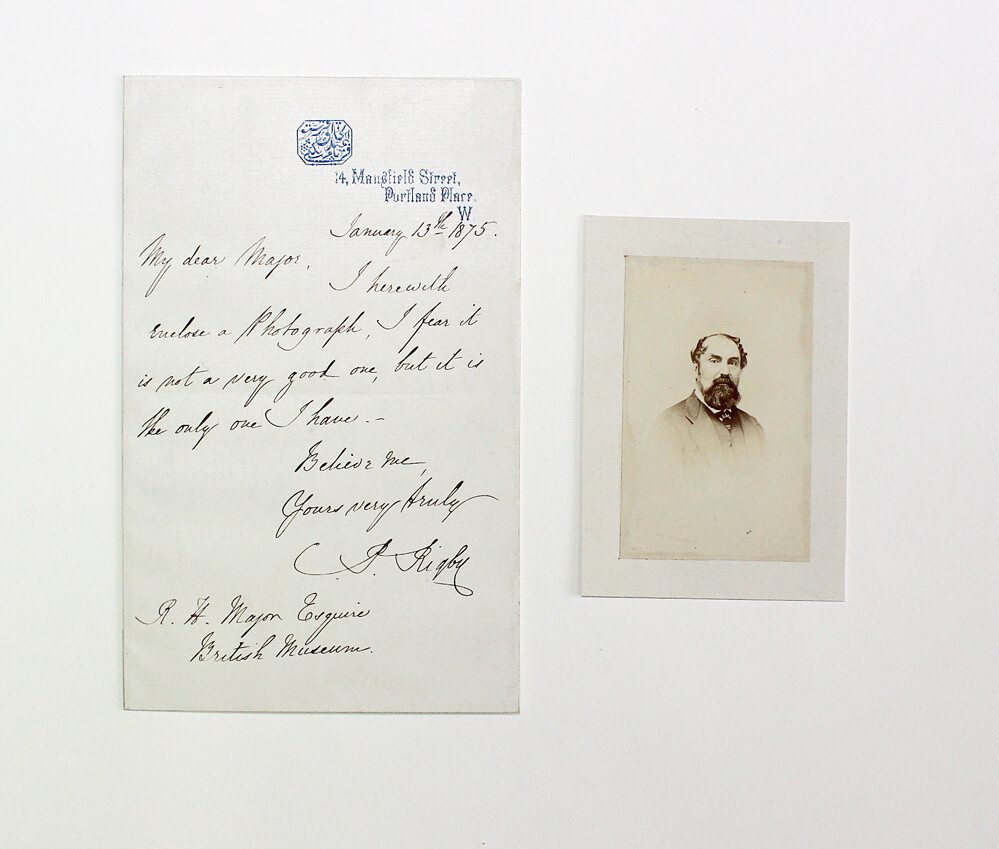
An Original Letter and Photograph Signed and Written by General Christopher Palmer Rigby to Richard Henry Major.
An Original Letter and Photograph Signed and Written by General Christopher Palmer Rigby to Richard Henry Major. Letter dated 1875. A letter enclosing the photograph and thanks. General Christopher Palmer Rigby (1820-1885). Born in Hampshire in 1820, Rigby's early years were ones of Dickensian misery. In 1834, aged fourteen, he joined the Military College, and in 1836 he was posted to India, attached to the 5th Regiment Native Infantry at Poona, beginning an extraordinary career in Colonial service. Due to his language skills (he was fluent in Arabic, Persian, Hindustani, Mahratta, Canarese and Guzeratti) he rose quickly, becoming by the 1850s Superintendent of the Revenue Survey in Deccan, then in 1857 Superintendent of Police with the Field Expeditionary Force which captured Bushire. Forming a police force from local Persians he instigated a ban on alcohol, and freed all slaves. He also undertook to prevent the local Jewish and Armenian women from being abused in the street, From July 1858 to September 1861, as H.M. Consul to Zanzibar and Muscat, during which time he received the explorers Richard Burton, John Speke and John Grant; he also tried, found guilty and hung the murderers of Dr. Roscher, and suppressed an insurrection undertaken by the Sultan of Zanzibar's brothers, Barghash and Thuwaini. Rigby's successful attempts to convince the Sultan to help end the slave trade, not just amongst Arabic traders, but also "British subjects residing in the Zanzibar dominions... in the habit of buying and selling Africans as slaves", are obviously one of Rigby’s proudest achievements: Prior to his retirement, Rigby spent three years from 1864 back in India undertaking negotiations of various boundary disputes between neighbouring princely rulers, whilst continuing his fight against slavery, this time at Kutch and Kattiawar.
